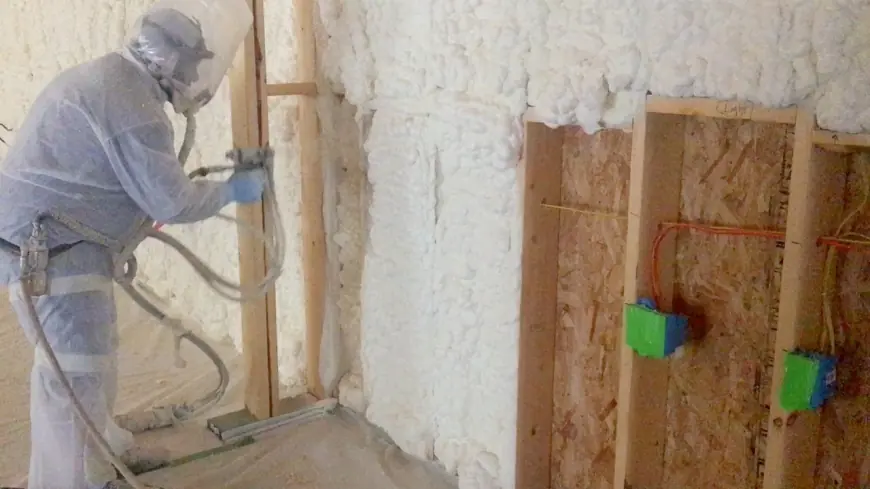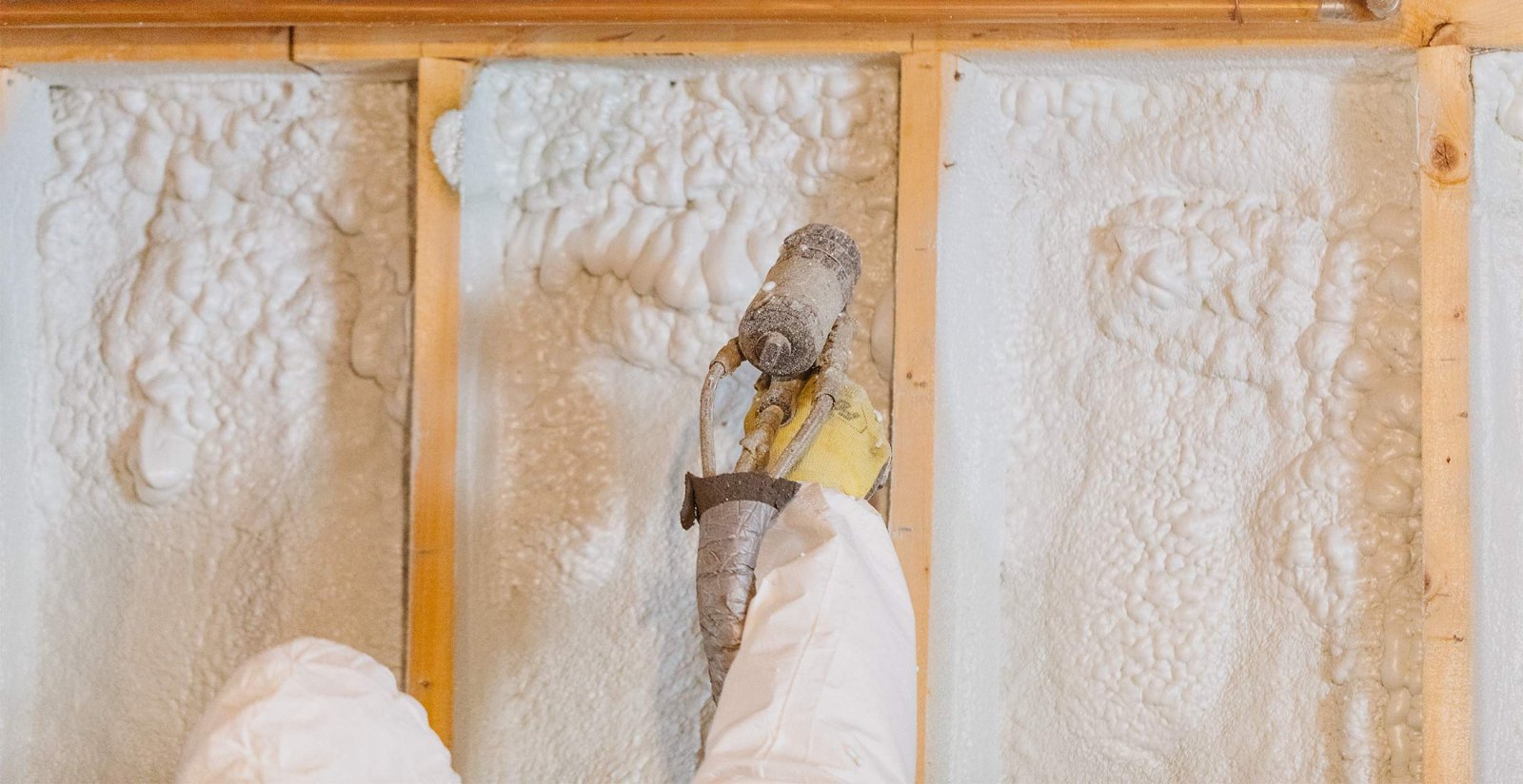Addressing Structural Integrity with Closed-Cell Spray Foam Insulation

Closed-cell spray foam insulation is recognized not only for energy efficiency but also for its ability to improve structural integrity in residential and commercial buildings. Property owners and contractors are increasingly seeking insulation solutions that strengthen building envelopes, control moisture, and maintain durability over time. This article explains how closed-cell spray foam contributes to structural stability, code compliance, and long-term performance while answering the most practical questions asked by homeowners and commercial managers.
How Closed-Cell Spray Foam Contributes to Structural Strength
Closed-cell spray foam insulation services is denser than open-cell foam and cures into a rigid material that adheres to surfaces. When applied to walls, roof decks, or floors, it creates a bonded layer that enhances rigidity and resistance to external stress. This reinforcement is particularly valuable in areas exposed to wind loads, seismic activity, or frequent thermal cycling.
The Role of Density in Structural Reinforcement
Closed-cell foam typically has a density of around 2 pounds per cubic foot. This density gives it compressive strength that supports wall sheathing, roof panels, and framing members. The hardened foam layer distributes force across a wider area, reducing localized strain on materials.
Impact on Wind Uplift Resistance
In roofing applications, closed-cell spray foam provides added resistance against wind uplift. By adhering directly to decking and roof assemblies, it reduces the risk of material separation during high winds, protecting commercial and residential structures in hurricane-prone regions.
Comparison: Closed-Cell vs. Open-Cell Insulation
Moisture Control and Its Connection to Building Longevity
Moisture is a leading cause of structural deterioration in buildings. Closed-cell spray foam acts as both an insulator and a moisture barrier, reducing risks associated with water intrusion and condensation.
Vapor Retarder Properties
The closed-cell structure of the foam resists water absorption and prevents vapor diffusion. This property helps minimize condensation within wall assemblies, which can otherwise lead to rot, mold growth, or corrosion of metal framing components.
Roof Deck Protection
When applied under roof decking, spray foam prevents moisture migration into attic spaces or interior cavities. This protective layer extends the service life of roof assemblies and reduces the likelihood of expensive repairs caused by hidden water damage.
Long-Term Durability Gains
By preventing moisture-related problems, closed-cell spray foam indirectly enhances structural integrity. Materials such as wood, steel, and concrete remain more stable over time when they are shielded from repeated wetting and drying cycles.
Energy Efficiency and Structural Performance Connection
Energy efficiency and structural stability often intersect. Closed-cell spray foam reduces uncontrolled air leakage, which in turn maintains consistent indoor environments that place less strain on building assemblies.
Reduced Thermal Expansion Stress
Buildings expand and contract as temperatures change. By limiting drafts and temperature fluctuations, spray foam reduces repetitive stress on joints and connections, leading to fewer material failures over decades of use.
Lower HVAC Loads and Operational Stress
Improved insulation performance reduces heating and cooling demands, which prevents extreme humidity swings inside the building. Controlled indoor conditions contribute to the preservation of interior finishes and framing components.
Applications of Closed-Cell Spray Foam for Structural Reinforcement
The effectiveness of closed-cell spray foam depends on where and how it is applied. Different parts of a building benefit in distinct ways.
Wall Cavities and Exterior Sheathing
When installed in wall cavities, closed-cell spray foam bonds directly to sheathing and studs. This adhesion helps distribute external loads more evenly, improving overall wall rigidity in both wood and steel framing systems.
Roof Decks and Attics
Foam applied beneath roof decking adds stiffness to the roof structure. In commercial flat roofs, it reduces deflection under heavy loads, while in pitched roofs it enhances resistance to wind uplift and moisture migration.
Floors and Crawl Spaces
Closed-cell spray foam under floors adds structural strength while controlling ground moisture intrusion. This application is particularly beneficial in humid climates where crawl space air can weaken flooring systems.
Code Compliance and Industry Standards
Building codes increasingly recognize the performance of closed-cell spray foam in both energy efficiency and durability. Compliance with standards ensures that insulation not only meets thermal requirements but also contributes to long-term safety.
Meeting Air Leakage Standards
Closed-cell spray foam provides continuous air barriers that align with codes requiring tight building envelopes. This helps commercial buildings pass blower door testing and achieve energy performance targets.
Fire and Safety Considerations
Proper installation must comply with fire safety codes. Foam is often required to be covered by thermal barriers or ignition barriers depending on the application, ensuring it contributes to both safety and durability without introducing risks.
Industry Certifications
Products are tested against ASTM standards for compressive strength, moisture absorption, and air permeability. Verified results give property owners confidence that the installed foam will perform as intended for structural reinforcement.
Challenges and Considerations in Structural Applications
While closed-cell spray foam offers clear benefits, property owners and contractors should be aware of application challenges that affect performance.
Installation Precision
Improper application thickness can lead to uneven curing or thermal bridging. Skilled installers are necessary to ensure consistent coverage and reliable reinforcement.
Compatibility with Other Materials
Closed-cell foam bonds well with most surfaces, but compatibility with adhesives, coatings, or membranes should be verified. This prevents issues with adhesion or long-term performance.
Cost Versus Benefit Evaluation
Although closed-cell foam generally costs more than other insulation types, its dual role as an insulator and structural enhancer often justifies the investment in commercial and residential projects focused on durability.
Conclusion
Closed-cell spray foam insulation strengthens building envelopes while providing moisture control and energy efficiency. Its density and rigidity reinforce walls, roofs, and floors, making structures more resilient against wind, water intrusion, and thermal cycling. These benefits extend the service life of materials and reduce long-term maintenance demands. For property owners, addressing structural integrity through insulation is a proactive measure that combines immediate energy savings with lasting durability. Working with a professional spray foam insulation contractor ensures that closed-cell spray foam delivers both performance and protection, making it a trusted solution in modern construction and renovation.
FAQs
How does closed-cell spray foam improve wall strength?
Closed-cell foam bonds to studs and sheathing, adding rigidity and distributing loads more evenly across wall assemblies.
Is closed-cell spray foam effective against moisture damage?
Yes. Its impermeable structure acts as a vapor retarder, limiting condensation and water intrusion that can damage framing materials.
Can spray foam insulation help roofs withstand wind events?
Closed-cell spray foam increases roof deck stiffness and adhesion, reducing the risk of uplift during strong winds.
Does closed-cell spray foam meet code compliance for air barriers?
It does. Closed-cell spray foam forms a continuous barrier that helps buildings meet or exceed code requirements for airtightness.
What is the lifespan of closed-cell spray foam insulation in buildings?
When properly installed, closed-cell spray foam can last for the life of the structure, maintaining both insulation performance and structural reinforcement.
Reviewer: Emma Robinson contributed her knowledge from 8 years working with the spray foam industry. Her review helped shape this content with ideas grounded in what contractors and homeowners actually value.
What's Your Reaction?
 Like
0
Like
0
 Dislike
0
Dislike
0
 Love
0
Love
0
 Funny
0
Funny
0
 Angry
0
Angry
0
 Sad
0
Sad
0
 Wow
0
Wow
0




















































